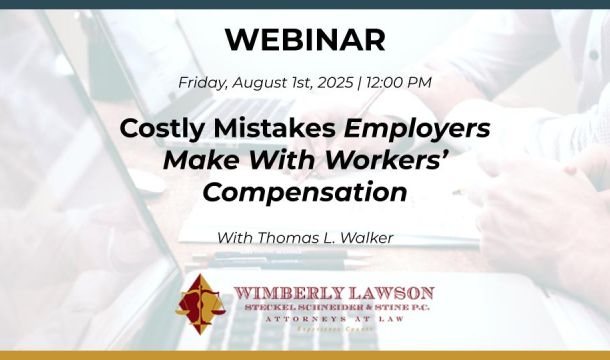So Long Snoopy—The Perils of Terminating the Long-term employee
My brother, who is in the marketing business, suggested that I do a blog post on the termination of Snoopy as the spokesperson (spokesdog?) of Metlife after 31 years in that role. He could not believe that someone could be fired after 31 years of service. He raises a good point—it does seem to be very hard for an employer to terminate a long-term employee. However, it is not impossible. Sometimes, there comes a point when even a long-term employee is no longer a good fit for a company. Theoretically, if that employee is an "at-will" employee, which means that he or she does not have a written contract of employment, he or she can be terminated at any time for any reason or no reason at all—at least under state law in Georgia. Other states have limitations or exceptions to at-will employment.
However, if that long-term employee is also over the age of 40, he or she is covered by the federal Age Discrimination in Employment Act (ADEA), which prohibits discrimination against employees over the age of 40. If he or she had a medical condition that qualifies as a "disability," he or she may also be covered by the federal Americans With Disabilities Act (ADA), which prohibits discrimination against qualified persons with disabilities and requires employers to provide reasonable accommodations for disabilities. And if that long-term employee belongs to another classification protected by federal law, such as race, religion, national origin, gender, or color, then he or she may be covered by Title VII of the Civil Rights Act of 1964, as amended, which prohibits discrimination against persons in those protected classifications. There are federal protections for certain whistleblowers or persons who have made complaints about discrimination, wage and hour, or safety violations. There are also federal protections for persons who utilize leave under the Family and Medical Leave Act (FMLA).
In short, there are lot of federal laws (and some state laws) that a terminated employee may try to invoke if he or she feels unfairly terminated. Therefore, before making the decision to terminate a long-term employee (or any employee who is in a protected classification), it makes sense to consult with counsel to determine if the termination is defensible if the terminated employee decides to bring litigation.
As for Snoopy—he had a good run. Unfortunately, neither dogs nor cartoon characters are covered by state or federal employment laws, so we are not likely to see him filing any litigation.

Kathleen J. Jennings is a former principal in the Atlanta office of Wimberly, Lawson, Steckel, Schneider, & Stine, P.C. She defends employers in employment matters, such as sexual harassment, discrimination, Wage and Hour, OSHA, restrictive covenants, and other employment litigation and provides training and counseling to employers in employment matters.
Related Content
Get Email Updates
Recent Content

How to Audit Employment Discrimination Laws Compliance

TPS Update (As of 6/17/2025)

TPS Designation for Honduras and Nicaragua Automatically Extended, But the Date is Uncertain

President Trump Discourages Criminal Enforcement of Agency Rules

Supreme Court Suggests Trump Can Fire Agency Heads without Cause
